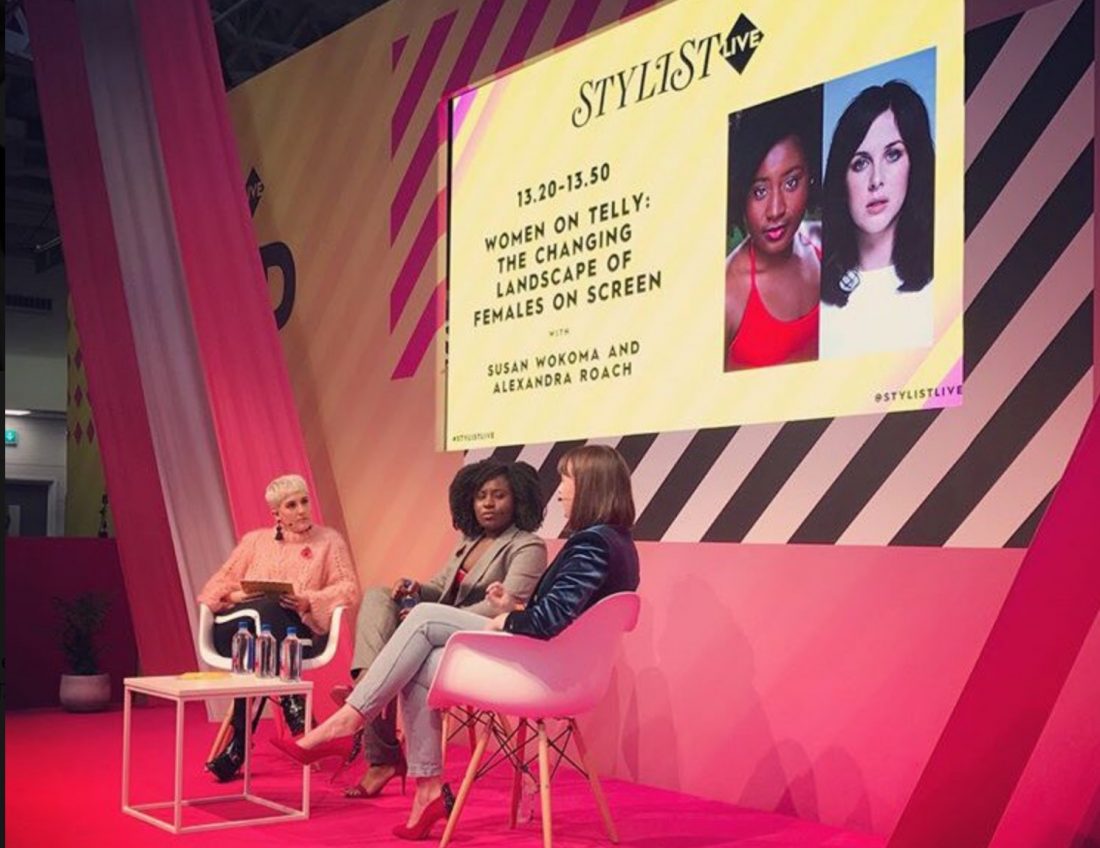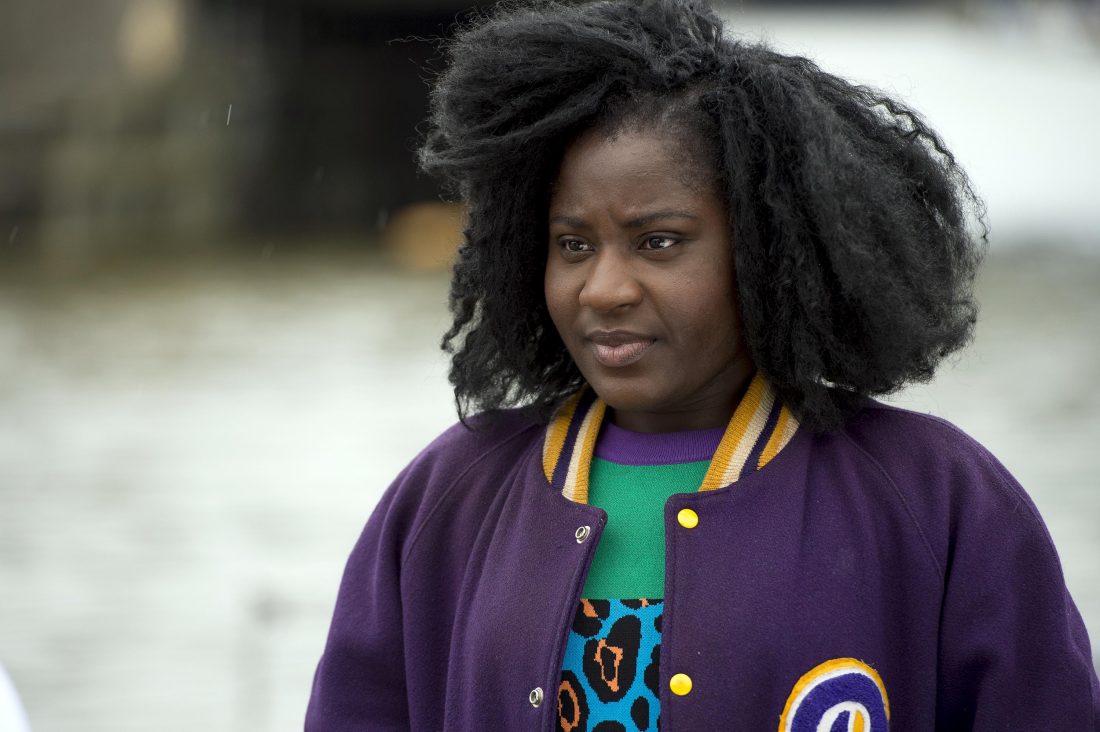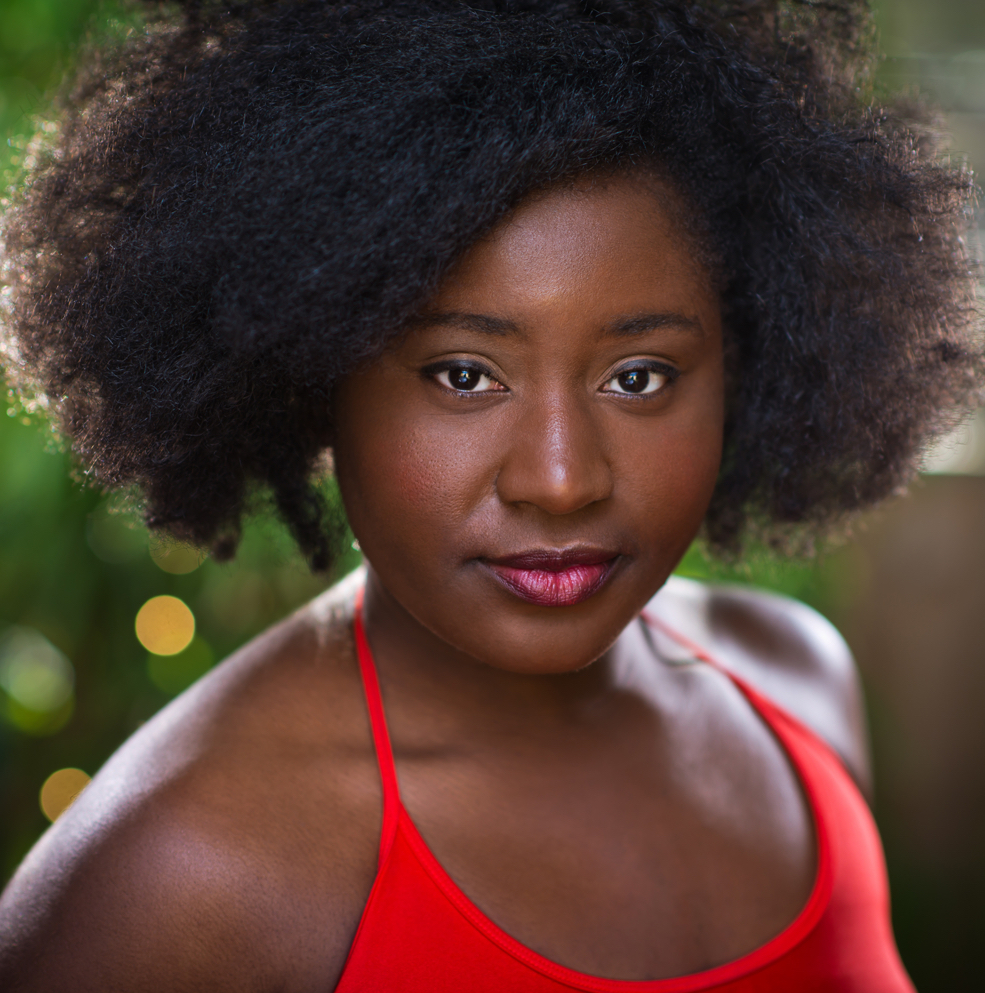With strong women such as Shonda Rhimes, Issa Rae and Michaela Coel making their presence felt in the TV industry, both in the US and the UK, is it right to assume that the landscape is changing when it comes to how women are portrayed on TV?
 Well, this was one of the questions explored at the recently concluded #StylistLive festival where Chewing Gum’s Susan Wokoma and fellow RADA actress Alexandra Roach, took a closer look at the topic: Women On Telly: The Changing Landscape of Females on Screen.
Well, this was one of the questions explored at the recently concluded #StylistLive festival where Chewing Gum’s Susan Wokoma and fellow RADA actress Alexandra Roach, took a closer look at the topic: Women On Telly: The Changing Landscape of Females on Screen.
Here are some of the points that were put forward during the discussion:
We’ve seen a massive rise in really interesting stories on TV but that hasn’t necessarily translated onto the big screen, to cinema. Why do you think that is?
Susan: I think cinema is a much more difficult market…but I think things are easier, especially now when we have Netflix and Amazon. There’s also more platforms than just the four or five different channels and so people can take pockets of risk which don’t cost the channels very much because they don’t want to lose money and then when it takes off, it’s amazing and they’re delighted. What this means is that you have this visibility so people are watching TV and are going “that’s starring so and so, who’s written it as well, I could do it” and it inspires confidence. But we still have a problem because the people in charge are old white men who went to the same five schools and until that changes, you’re not going to see true diversity across the board.
Who are the women that you think are leading the way?
Alexandra: Well over here we’ve got Phoebe Waller-Bridge and Michaela Coel, which is great for us to see as fellow actors, that they’re doing that and Susan has started writing too. It’s forced us to think, “oh we’re not where we want to be and I want to tell my stories.”.
Susan: For me the person that I find awe-inspiring is Shonda Rhimes because if you think about how far Grey’s Anatomy has come and the fact that she was at the helm of that and what has happened since and what she’s been able to create since. I think that what she has achieved is extraordinary and still rare on TV because actually, it’s a bit of a club policy; it’s one in and one out. We have a Shonda Rhimes, it took so long for Issa Rae to do Insecure. It’s still so slow and I think as well, it’s even slower because yeah we have Michaela Coel… and where are the other voices?

Are we seeing the end of that of women being portrayed as the sexy assistant or murder victim?
Susan: I think that you can decide to make these decisions about your television shows but people have a platform to voice their opinions and it might not be received well. For instance, there was the whole conversation about the Sky show Gorilla where a lot of black women felt absent from a story that is about the Black Power Movement in the UK. It seemed weird that there were no black women at the forefront of it and collectively black women went “I’m not watching it” and they didn’t and it affected the show. I think at your peril, have those characters but people are going to speak up.
Can we tell each other’s stories, in regards to gender and race experiences?
Susan: You can as long as you do your research. I think it’s dangerous to sort of go, only these kinds of people can write these stories but what we have at the moment is one kind of person who predominately writes these stories so let’s try and give it to other kinds of people.

Thoughts on women taking the roles of previously male roles
Alexandra: It’s a double-edged sword. I’m in one way really pleased that we’re seeing a female Doctor Who for example, but then the other side is like I don’t want the leftovers from the men. I want new roles written specifically for us that are complex and great within their own right.
Susan: With Doctor Who, the reason why I am so excited is because number one, Jody is an absolutely incredible actress and that’s really exciting but also Doctor Who is an alien. There’s nothing that is said in the history of that character that says that it’s male. So for me, I’m like yeah open that out, that makes sense but I take your [Alexandra] stance when it comes to James Bond or Ghostbusters. No, let’s have our own things and also look what happened when Ghostbusters came out. What Leslie Jones particularly went through and watching that was a horrifying consequence for her because what it made me feel was “God, do I want to step into the boots of any kind of big franchise because is that what happens when you do? And let’s be honest, it happened to the black woman.
I think it’s safe to say that while more women, are appearing and contributing to mainstream TV; there is still quite a long way to go before we see long-lasting, big change.
What do you think? Do you agree with their views? We’d love to hear your thoughts in the comments section below.












